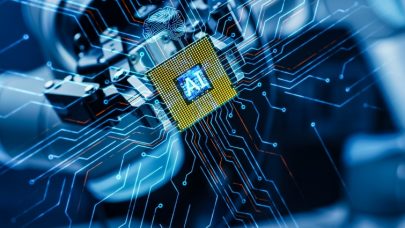SAN DIEGO, Nov. 16, 2020 — HPCwire, the leading publication for news and information for the high performance computing industry, announced the winners of the 17th annual HPCwire Readers’ and Editors’ Choice Awards during the Supercomputing Conference (SC20) taking place this week. Awards presentations and acceptance videos can be seen here.
Symbolic of overwhelming support and continued success, the awards serve as a pillar of recognition that acknowledge major projects, achievements, outstanding leadership and innovative breakthroughs. We are proud of and grateful for the participation from our readers across the globe who truly engaged this year and made their voices and choices heard. Making it to the ballot has become increasingly more competitive and always signifies an honorable, valuable contribution to our HPC community, to progress and to humankind.
“Each year we look forward to connecting with our HPC friends and peers to support exceptional industry innovation at SC. While it saddens us that we cannot physically be with one another, we take great pride in bringing the HPC community together through our digital Readers’ and Editors’ Choice Awards,” said Tom Tabor, CEO of Tabor Communications, publisher of HPCwire. “This pandemic has brought us together in ways we never thought possible. The various collaborations, innovative research, and unexpected developments have not gone unnoticed during the challenges of the past year. We congratulate and honor those who have exceeded expectations and have truly excelled despite the difficulties and strain presented by the virus. Our congratulations to all the nominees and the winners. We hope to see you all at the virtual Readers’ Choice Awards Party and hopefully, next year, in person to celebrate!”
HPCwire has designated two categories of Awards: (1) Readers’ Choice, where winners have been determined through election by HPCwire readers, and (2) Editors’ Choice, where winners have been selected by a panel of HPCwire editors and thought leaders in HPC. The process started with an open nomination process, with voting taking place throughout the month of September. These awards are widely recognized as being among the most prestigious given by the HPC community to its own each year.
Best Use of HPC in Life Sciences
Readers’ Choice: ORNL using Summit supercomputer
Editors’ Choice: Researchers at St. Jude using DDN and Nvidia
Best Use of HPC in Physical Sciences
Readers’ Choice: ECMWF working with ORNL on Summit
Editors’ Choice: NCSA-led team using PSC’s Bridges system and TACC’s Stampede2 system – both XSEDE-allocated resources
Best Use of HPC in Response to Societal Plights (COVID-19 focused research/programs)
Readers’ Choice: Folding@Home’s marshalling of volunteer computing resources
Editors’ Choice (tie):
AMD-led COVID-19 HPC Fund
RIKEN’s early launch of Fugaku supercomputer
Best Use of HPC in Energy
Readers’ Choice: ANL using Theta
Editors’ Choice: Researchers from Georgia Tech and the Hanoi University of Science and Technology using SDSC’s Comet system, TACC’s Stampede2 system -both XSEDE-allocated resources
Best Use of HPC in Industry (Automotive, Aerospace, Manufacturing, Chemical, etc.)
Readers’ Choice: Aramco Research Center, ANL, and Convergent Science researchers using Theta
Editors’ Choice: Covestro AG with Lenovo and Nvidia
Best Use of HPC in Financial Services
Readers’ Choice: Penguin Computing
Editors’ Choice: Moody’s using Microsoft Azure
Best Use of High Performance Data Analytics & Artificial Intelligence
Readers’ Choice: University of Birmingham with IBM
Editors’ Choice: Carnegie Mellon researchers working on Bridges and Bridges AI
Best HPC Storage Product or Technology
Readers’ Choice: Intel DAOS with Lenovo ThinkSystem SR630 Servers
Editors’ Choice: DDN EXAScaler
Best AI Product or Technology
Readers’ and Editors’ Choice: Nvidia DGX A100
Best Use of HPC in the Cloud (Use Case)
Readers’ Choice: Harvard Medical School on Google Cloud
Editors’ Choice: Researchers from IceCube Neutrino Observatory with SDSC and Open Science Grid
Best HPC Cloud Platform
Readers’ Choice: Amazon Web Services
Editors’ Choice: Microsoft Azure Cloud
Best HPC Server Product or Technology
Readers’ Choice: NVIDIA A100 GPU
Editors’ Choice: AMD 2nd Gen EPYC “Rome” processors
Best HPC Programming Tool or Technology
Readers’ Choice: Singularity
Editors’ Choice: NVIDIA CUDA Toolkit
Best HPC Interconnect Product or Technology
Readers’ Choice and Editors’ Choice: NVIDIA Mellanox HDR 200G InfiniBand
Best HPC Collaboration (Academia/Government/Industry)
Readers’ Choice: NHS organizations, UK public health agencies, Wellcome Sanger Institute (and other partners forming the Genomics UK Consortium) using DDN, CLIMB, Birmingham & Cardiff University in partnership with Dell, Lenovo
Editors’ Choice: COVID-19 HPC Consortium created by the DOE and IBM
Top Energy-Efficient HPC Achievement
Readers’ Choice: LRZ introduced “Wintermute”
Editors’ Choice: Sandia National Laboratories
Top HPC-Enabled Scientific Achievement
Readers’ Choice: A research team led by Australian National University using SuperMUC-NG at LRZ
Editors’ Choice: A team at ORNL using Summit supercomputer
Top Supercomputing Achievement
Readers’ Choice: NVIDIA Selene Supercomputer
Editors’ Choice: Supercomputer Fugaku, a joint project of Riken, Fujitsu, and Arm
Top 5 New Products or Technologies to Watch
Readers’ Choice:
NVIDIA A100 “Ampere” GPU
AMD 2nd Gen EPYC “Rome” processors
NVIDIA HPC SDK
MemVerge Big Memory
BeeGFS
Editors’ Choice:
NVIDIA A100 “Ampere” GPU
AMD 2nd Gen EPYC “Rome” processors
Fujitsu A64FX Arm processors
Cerebras CS-1 system
DAOS with Intel Optane Persistent Memory
Top 5 Vendors to Watch
Readers’ Choice:
NVIDIA
AMD
Intel
Arm
Lenovo
Editors’ Choice:
NVIDIA
AMD
Intel
HPE
Google Cloud
Workforce Diversity Leadership Award
Readers’ Choice (tie):
The National Center for Women & Information Technology
And
STEM-Trek
Editors’ Choice: Berkeley Lab’s IDEA program
Outstanding Leadership in HPC
Readers’ Choice: Mateo Valero
Editors’ Choice: Yutaka Ishikawa & Satoshi Matsuoka
More information on these awards can be found at the HPCwire website at https://tci.taborcommunications.com/HPCwire_Readers_Choice_Awards_2020 and on Twitter through the hashtag: #HPCwireAwards.
About HPCwire
HPCwire is the #1 news and information resource covering the fastest computers in the world and the people who run them. With a legacy of world-class editorial and journalism dating back to 1987, HPCwire is the news source of choice for science, technology and business professionals interested in high performance and data-intensive computing. Visit HPCwire at www.hpcwire.com.
About Tabor Communications Inc.
Tabor Communications Inc. (TCI) is a media and services company dedicated to high-end, performance computing. As publisher of a complete advanced scale computing portfolio that includes HPCwire, Datanami, EnterpriseAI, and HPCwire Japan, TCI is the market-leader in online journalism covering emerging technologies within the high-tech industry, and a services company providing events, audience insights, and other services for companies engaged in performance computing in enterprise, government, and research. More information can be found at www.taborcommunications.com.
Source: HPCwire



























































